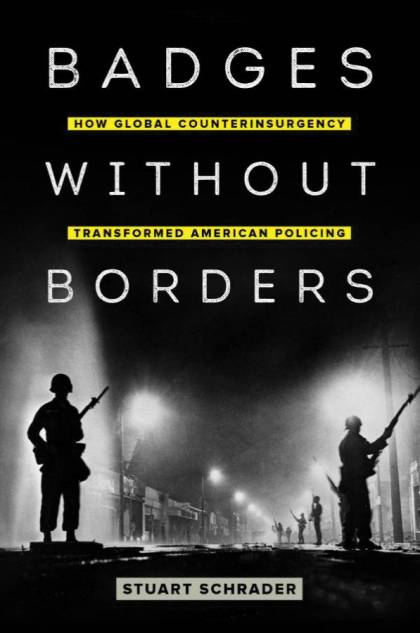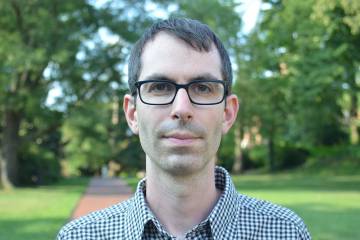For nearly three decades, the U.S. government exported American cops to provide foreign police leadership with training and technical assistance to prevent the spread of communism. They did this in Japan and Turkey in the immediate post-WWII years into the 1950s under the auspices of the CIA. In 1962, the effort was organized into the Office of Public Safety, which was led by a police-training expert from Kansas City named Byron Engle. Engle and the OPS trained officers in Brazil, Congo, South Vietnam—52 countries all told. During the same period, American law enforcement wrestled with growing political unrest at home, such as the civil rights and antiwar movements. In Badges Without Borders (University of California Press), Stuart Schrader untangles the complicated bureaucratic history of how the U.S. foreign policy of communist containment ended up shaping domestic law enforcement policy.

Schrader, a lecturer and assistant research scientist in the Department of Sociology, distills a huge amount of information—government agency memoranda and reports held in the National Archives; police training manuals; oral histories; interviews with former policymakers, and more—into a densely compact narrative. The main influencers in this story aren't chiefs of staff, defense secretaries, or attorneys general but bureaucrats occupying positions in close proximity to those seats of power. One was the OPS' Engle, who oversaw law enforcement training operations deemed necessary partially due to the efforts of Robert Komer, a CIA analyst on the staff of President John F. Kennedy's National Security Council.
Komer was instrumental in rethinking what national security meant when capitalist democracies were seen to be threatened by military or civilian counterinsurgencies. Arnold Sagalyn, director of the Treasury Department's Office of Law Enforcement Coordination, was instrumental in advocating for applying Engle's OPS overseas strategies to domestic law enforcement, informing the architects of President Lyndon B. Johnson's War on Crime.
It's a knotty, paper-pushing journey, but Schrader compellingly uses this history to point toward pressing challenges we face today: the overreliance on militarized police to address sociopolitical issues in American cities, and the big business of global private security firms.
Posted in Politics+Society
Tagged nonfiction








